Immunology Antibodies 2
Anti-PSMC2 Antibody (CAB1985)
- SKU:
- CAB1985
- Product Type:
- Antibody
- Reactivity:
- Human
- Reactivity:
- Mouse
- Reactivity:
- Rat
- Host Species:
- Rabbit
- Isotype:
- IgG
- Research Area:
- Immunology
Description
| Antibody Name: | Anti-PSMC2 Antibody |
| Antibody SKU: | CAB1985 |
| Antibody Size: | 20uL, 50uL, 100uL |
| Application: | WB IHC IF |
| Reactivity: | Human, Mouse, Rat |
| Host Species: | Rabbit |
| Immunogen: | Recombinant fusion protein containing a sequence corresponding to amino acids 1-160 of human PSMC2 (NP_002794.1). |
| Application: | WB IHC IF |
| Recommended Dilution: | WB 1:500 - 1:2000 IHC 1:50 - 1:200 IF 1:50 - 1:200 |
| Reactivity: | Human, Mouse, Rat |
| Positive Samples: | HepG2, SW620, BT474, DUCAR3, 293T, mouse spleen, mouse brain, rat testis, rat liver, BT-474, OVCAR3, NCI-H460 |
| Immunogen: | Recombinant fusion protein containing a sequence corresponding to amino acids 1-160 of human PSMC2 (NP_002794.1). |
| Purification Method: | Affinity purification |
| Storage Buffer: | Store at -20'C. Avoid freeze / thaw cycles. Buffer: PBS with 0.02% sodium azide, 50% glycerol, pH7.3. |
| Isotype: | IgG |
| Sequence: | MPDY LGAD QRKT KEDE KDDK PIRA LDEG DIAL LKTY GQST YSRQ IKQV EDDI QQLL KKIN ELTG IKES DTGL APPA LWDL AADK QTLQ SEQP LQVA RCTK IINA DSED PKYI INVK QFAK FVVD LSDQ VAPT DIEE GMRV GVDR NKYQ IHIP LPPK IDPT |
| Gene ID: | 5701 |
| Uniprot: | P35998 |
| Cellular Location: | Cytoplasm, Nucleus, P-body |
| Calculated MW: | 33kDa/48kDa |
| Observed MW: | 49kDa |
| Synonyms: | PSMC2, MSS1, Nbla10058, S7, ATPase 2 |
| Background: | The 26S proteasome is a multicatalytic proteinase complex with a highly ordered structure composed of 2 complexes, a 20S core and a 19S regulator. The 20S core is composed of 4 rings of 28 non-identical subunits; 2 rings are composed of 7 alpha subunits and 2 rings are composed of 7 beta subunits. The 19S regulator is composed of a base, which contains 6 ATPase subunits and 2 non-ATPase subunits, and a lid, which contains up to 10 non-ATPase subunits. Proteasomes are distributed throughout eukaryotic cells at a high concentration and cleave peptides in an ATP/ubiquitin-dependent process in a non-lysosomal pathway. An essential function of a modified proteasome, the immunoproteasome, is the processing of class I MHC peptides. This gene encodes one of the ATPase subunits, a member of the triple-A family of ATPases which have a chaperone-like activity. This subunit has been shown to interact with several of the basal transcription factors so, in addition to participation in proteasome functions, this subunit may participate in the regulation of transcription. This subunit may also compete with PSMC3 for binding to the HIV tat protein to regulate the interaction between the viral protein and the transcription complex. Alternative splicing results in multiple transcript variants encoding distinct isoforms. |
| UniProt Protein Function: | RPT1: The 26S protease is involved in the ATP-dependent degradation of ubiquitinated proteins. The regulatory (or ATPase) complex confers ATP dependency and substrate specificity to the 26S complex. In case of HIV-1 infection, positive modulator of Tat-mediated transactivation. Belongs to the AAA ATPase family. |
| UniProt Protein Details: | Protein type:Proteasome complex; Protease Chromosomal Location of Human Ortholog: 7q22.1-q22.3 Cellular Component: cytoplasm; cytosol; intracellular membrane-bound organelle; membrane; nucleoplasm; nucleus; proteasome complex Molecular Function:ATPase activity; protein binding; TATA-binding protein binding Biological Process: anaphase-promoting complex-dependent proteasomal ubiquitin-dependent protein catabolic process; antigen processing and presentation of exogenous peptide antigen via MHC class I, TAP-dependent; ER-associated protein catabolic process; MAPKKK cascade; negative regulation of ubiquitin-protein ligase activity during mitotic cell cycle; osteoblast differentiation; positive regulation of transcriptional preinitiation complex assembly; positive regulation of ubiquitin-protein ligase activity during mitotic cell cycle; proteasomal ubiquitin-dependent protein catabolic process; protein polyubiquitination; regulation of amino acid metabolic process; regulation of mRNA stability; stimulatory C-type lectin receptor signaling pathway; T cell receptor signaling pathway; tumor necrosis factor-mediated signaling pathway; ubiquitin-dependent protein catabolic process; Wnt receptor signaling pathway, planar cell polarity pathway |
| NCBI Summary: | The 26S proteasome is a multicatalytic proteinase complex with a highly ordered structure composed of 2 complexes, a 20S core and a 19S regulator. The 20S core is composed of 4 rings of 28 non-identical subunits; 2 rings are composed of 7 alpha subunits and 2 rings are composed of 7 beta subunits. The 19S regulator is composed of a base, which contains 6 ATPase subunits and 2 non-ATPase subunits, and a lid, which contains up to 10 non-ATPase subunits. Proteasomes are distributed throughout eukaryotic cells at a high concentration and cleave peptides in an ATP/ubiquitin-dependent process in a non-lysosomal pathway. An essential function of a modified proteasome, the immunoproteasome, is the processing of class I MHC peptides. This gene encodes one of the ATPase subunits, a member of the triple-A family of ATPases which have a chaperone-like activity. This subunit has been shown to interact with several of the basal transcription factors so, in addition to participation in proteasome functions, this subunit may participate in the regulation of transcription. This subunit may also compete with PSMC3 for binding to the HIV tat protein to regulate the interaction between the viral protein and the transcription complex. Alternative splicing results in multiple transcript variants encoding distinct isoforms. [provided by RefSeq, Mar 2011] |
| UniProt Code: | P35998 |
| NCBI GenInfo Identifier: | 547930 |
| NCBI Gene ID: | 5701 |
| NCBI Accession: | P35998.3 |
| UniProt Secondary Accession: | P35998,Q3LIA5, Q9UDI3, A4D0Q1, B7Z5E2, |
| UniProt Related Accession: | P35998 |
| Molecular Weight: | 33,274 Da |
| NCBI Full Name: | 26S protease regulatory subunit 7 |
| NCBI Synonym Full Names: | proteasome 26S subunit, ATPase 2 |
| NCBI Official Symbol: | PSMC2 |
| NCBI Official Synonym Symbols: | S7; MSS1; Nbla10058 |
| NCBI Protein Information: | 26S protease regulatory subunit 7 |
| UniProt Protein Name: | 26S protease regulatory subunit 7 |
| UniProt Synonym Protein Names: | 26S proteasome AAA-ATPase subunit RPT1; Proteasome 26S subunit ATPase 2; Protein MSS1 |
| UniProt Gene Name: | PSMC2 |
| UniProt Entry Name: | PRS7_HUMAN |

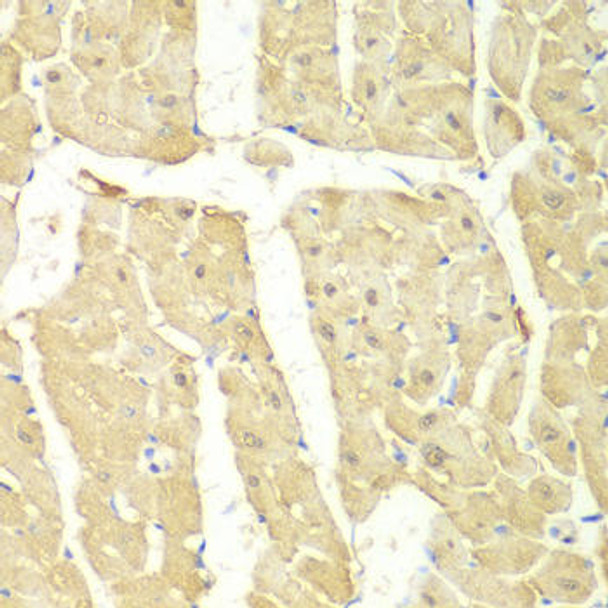
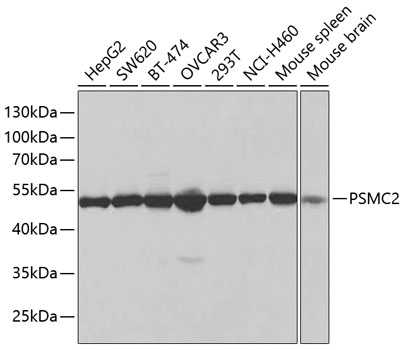
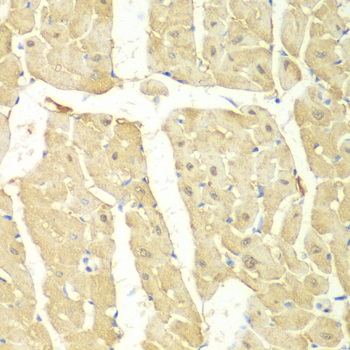
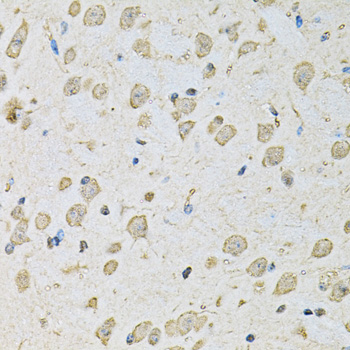
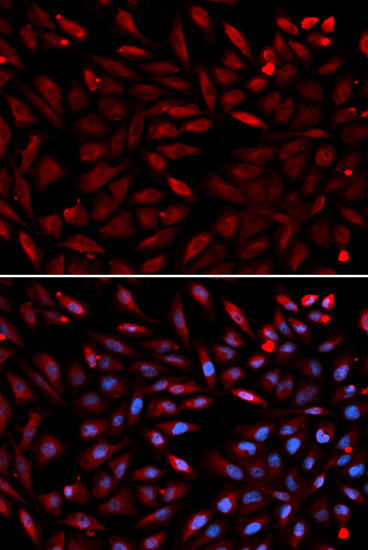
![Anti-DNAJC9 Antibody (CAB19850)[KO Validated] Anti-DNAJC9 Antibody (CAB19850)[KO Validated]](https://cdn11.bigcommerce.com/s-rd6ounxcu2/images/stencil/590x590/products/56022/61204/anti-dnajc9-antibody-cab19850ko-validated__49204__74846.1706533737.jpg?c=1)
![Anti-SPR Antibody (CAB19859)[KO Validated] Anti-SPR Antibody (CAB19859)[KO Validated]](https://cdn11.bigcommerce.com/s-rd6ounxcu2/images/stencil/590x590/products/56030/61212/anti-spr-antibody-cab19859ko-validated__05799__71341.1706533739.jpg?c=1)
![Anti-NRBF2 Antibody (CAB19856)[KO Validated] Anti-NRBF2 Antibody (CAB19856)[KO Validated]](https://cdn11.bigcommerce.com/s-rd6ounxcu2/images/stencil/590x590/products/56027/61209/anti-nrbf2-antibody-cab19856ko-validated__92917__87488.1706533739.jpg?c=1)
![Anti-TFG Antibody (CAB19858)[KO Validated] Anti-TFG Antibody (CAB19858)[KO Validated]](https://cdn11.bigcommerce.com/s-rd6ounxcu2/images/stencil/590x590/products/56029/61211/anti-tfg-antibody-cab19858ko-validated__72029__04342.1706533739.jpg?c=1)
![Anti-NRD1 Antibody (CAB19857)[KO Validated] Anti-NRD1 Antibody (CAB19857)[KO Validated]](https://cdn11.bigcommerce.com/s-rd6ounxcu2/images/stencil/590x590/products/56028/61210/anti-nrd1-antibody-cab19857ko-validated__21805__15618.1706533739.jpg?c=1)